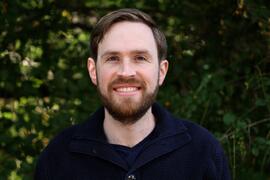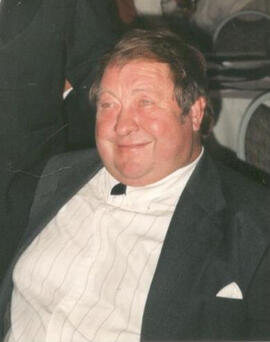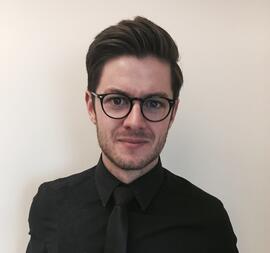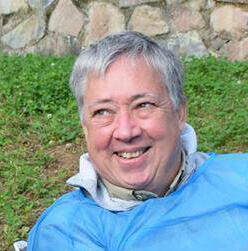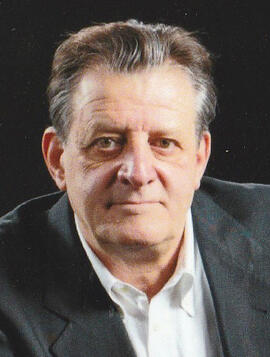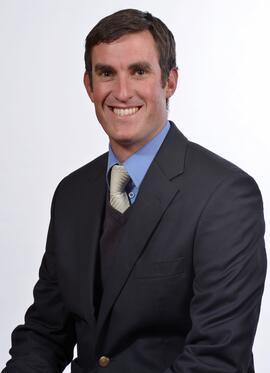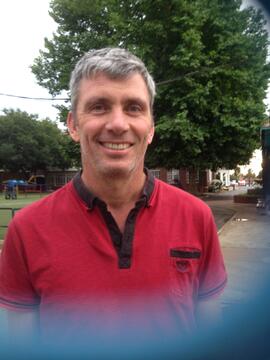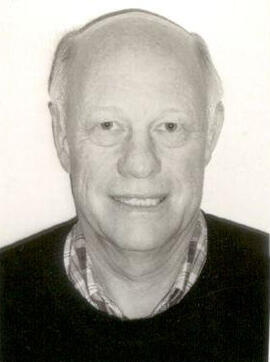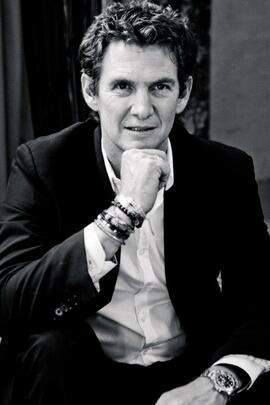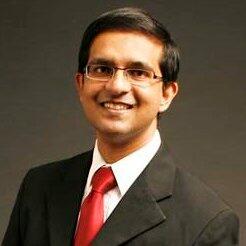Interview with Gabriel Ally – 2010
Gabriel came to St David’s from Sacred Heart in grade 8. He felt that his years from grade 0
to grade7 at Sacred Heart laid the foundation for his success at St David’s and in general.
The emphasis at Sacred Heart was on the Marist education with brothers still living on the
property at the time. Brother Anthony was his headmaster in grade 1 1968 – 9 and he had
an older brother and sister at the school. The primary school went up to grade 6 with a
middle school approach in grade 7 which prepared him for high school. Tony Williams was at
Sacred Heart during this time, was the prep headmaster and also coached soccer
Gabriel initially looked at St John’s and Michaelhouse but eventually decided that St David’s
was the high school for him after meeting Mr Williams. Initially he was rebellious but went
onto the straight and narrow from grade 10. He remembered John Edward Ferreira asking
him who was going to be head boy, and laughing incredulously when Gabriel replied “Me”.
When he first arrived he came with an open shirt and had to borrow a tie from lost property
as Sacred Heart boys didn’t wear ties in summer. After one week at school all the grade 8’s
went on camp with Mr Busscheau, Mr Dugmore, Mr Smith and Mr Williams.
All the boys lobbied for the prefects to also attend the camp and in matric Gabriel organised
that and the prefects went along, got to know the boys and were therefore better able to
profile them selecting appropriate mentors. This was the big success of his year as head
prefect and improved the mentoring system. In his first year all the naughty boys were given
prefects as their mentors and Gabriel’s mentor was Kunda Nyatsaambo, deputy head
prefect 2006 and head of house, College.
Gabriel played 1st team rugby, cricket, some soccer, participated in athletics and inter-house
swimming. He was also a member of the book quiz team in grade 12. He participated in
SMILE and was involved with some projects facilitated by Mr Martins. He enjoyed interhouse
music but didn’t get involved with drama as he didn’t have the courage. However
once he got to university he developed a passion for drama and was involved in two
university productions.
Teachers who made an impact on him were Mrs Roman, his tutor from grade 8 to matric, Mr
Williams especially in his matric year and his favourite teacher was Mrs Khanyile who taught
Zulu.
Gabriel was mayor of the junior city council from 2009 – 2010, this was then the private
organisation separate from the city council. As Mayor he endeavoured to contribute to
society in the areas of environment and welfare as much as possible and worked with other
NPO’s to achieve that goal. Mrs D Webb was the co-ordinator at St David’s and other boys
that participated before him were Sean Jamieson and Antimo Osato.
As head prefect Gabriel instituted a new punishment for boys who failed the new boys test –
they had to write an essay about why they loved St David’s. The results were interesting with
the feeling of brotherhood, brother’s keeper and involvement which emerged. Gabriel
wanted to instil a sense of tradition, discipline and spirit, setting goals in matric.
Gabriel also spoke at Mr Selima’s farewell where all the support staff were invited, saying a
few words in Zulu. He got chatting to Richard Lubisi and became friendly with him and
stayed in contact whilst he was at UCT. When Gabriel started doing some consultancy work
for his brother and needed to go and visit squatter camps, Richard took him to ivory Park
which is the reason that Gabriel now has the job he has. Richard is also now working for
Gabriel’s brother.
Steve Bailey died during Gabriel’s matric year. His death affected every boy in matric and he
was sorely missed.
Gabriel was awarded full colours for academics, service, leadership and general honours. a
Marcellin Champagnat medal and a special award, the Rotary Club Award for service
beyond self. Gabriel recalls the good feeling when Tyson Sithole was awarded an honours
blazer and how supportive all the other boys were.
The matric dance was very special and he remembers the opening song was “Kiss of a
Rose”. Mrs Greensill taught Gabriel and Chad White, deputy head how to waltz.
On leaving school Gabriel went to UCT to study philosophy and economics on an Allan Gray
Orbis Foundation Scholarship for Entrepreneurship and Leadership. After two years he
decided to take a break from his studies and return to Johannesburg to pursue his goal of
becoming a social entrepreneur. He was an apprentice in a small business and gained
valuable experience and knowledge on how to start and run a business in 2013. This
opportunity gave him the courage to start his own recycling and advertising venture. He is
currently working to support this initiative and plans to launch his own in 2014.
Gabriel is still involved with St David’s and is assisting Mrs Voorendyck in Life Orientation in
term three with the matrics and will be guest speaking at the prize giving in January 2014.
JLE September 2013
The Challenge – Final Address – Gabriel Ally - 2010
Good Evening.
“Gabriel enjoys taking part in group activities, he is popular and a leader amongst his peers.
Occasionally he acts impulsively and upsets someone, but these incidents are few and far
between. It has been a pleasure to teach Gabriel, I wish him luck for grade One and I know
he will enjoy the challenge.” ….In 12 years, not much has changed has it?
I still find myself leading and, on occasion, being impulsive. I sure hope I’m still popular and
a pleasure to teach, and I’m sure there are a few people sitting here tonight whom I have
upset along the way. Of all these words however, the biggest truism lies in the observation
that “he will enjoy the challenge”; a challenge that has been riddled with dreams,
responsibility, tears, elation and honour; a challenge that is still in its infancy and one that will
continue unto death. This challenge is life. A challenge that I have had the esteem of sharing
with a brotherhood, a challenge that has been blessed by the presence of family and one
that has been made easier by its path through St David’s.
A year ago I embarked on a challenge set forth by you; the challenge of following in the
footsteps of St Marchelin Champagnat, Michael Carey, Graeme Gallow, Kylo Molefe and
James Rawson. In doing so, I have been humbled by the opportunity to represent this
amazing band of brothers, this family, this way of life that represents far more than an
education. I stand before you today as a product of St David’s, as a man, as a disciple of an
institution that is far greater than any one individual.
As I look out at the boys sitting before me, I am comforted by the knowledge that what we
have achieved as the matric class of 2010 will be forever ingrained in their character. It is
true that it takes a village to raise a child and a community to spawn a man, and I can say
with confidence that when you leave St David’s you can say, “I have the courage to be that
man.” Until that day however, never shy away from the challenge of Confortare-Esto-Vir.
As some of you may have seen, the Marist flag is flying at half-mast today in remembrance
of Brother Anthony who passed away this week. Brother Anthony bid farewell to St David’s
long before our time here, but his affiliation to the Marist Brotherhood never faltered. This is
true of all Marist boys. This is true of our brother Steve Bailey. Tonight we are graced with
his spirit and I know each one of you sitting here, particularly the matrics, will understand the
severity of my words when I say that: “life is too short, to say life is too short”. I thank Mr and
Mrs Bailey for joining us this evening and for blessing the Marist family with a man whose
impact and maturity extended far beyond his 18 years of life. Steve, we miss you and we
love you.
Every oak tree was once an acorn. Now I’m aware that I am well over 6 feet tall, a massive
acorn, but I still have a lot of growth to do, as do we all. There is a common trend that when
Marist boys find their niche in the world, they tend to tower over forests of men with humility,
simplicity and modesty. When I think of a Marist boy who is defined by these traits, I think of
my brother and companion Chaid White. Chaidy, it has been an honour to have served
alongside you. You were never afraid to step aside when I needed to lead, or to step in when
I needed to follow. That applies to the entire prefect group. To Brad, Matt, Trist and Bazza,
our friendships has been cemented by the trials we have overcome on the sports fields and
in the corridors, thank you.
The best part of being able to stand up here tonight is that I have an opportunity to publicly
express my appreciation to the staff of St David’s. I won’t miss Shakespeare or pythagoras,
but I am certain I will miss our loving and supportive teachers. Not only are we blessed with
an exceptional education, but we are blessed with role models and friends. To Mr Van den
Berg, Mr Williams and Mrs Roman, I thank you for your undying support and guidance
throughout my life at St David’s and I applaud you for the work you do behind the scenes to
ensure that every boy sitting here has an opportunity to flourish.
The motherly urge, alongside hunger and thirst, is known to be one of the strongest natural
urges of human beings. Every son and husband sitting here will know that mom is always
right. We are here tonight not only as products of St David’s, but as products of our parents.
I have been blessed with a father who has never faltered in wanting the absolute best for his
son and a mother who has successfully seen three children through matric. Tonight marks
the end of my mother’s 21 year stint of packing lunches, labelling school books, answering
matron’s phone calls and buying enough raffle tickets for 10 people. Mom and Dad, thank
you for guiding me through this challenge with such love and care. We must all acknowledge
that without the support of our parents and the greater St David’s community, our lives would
not be as blessed as they are.
A young lad was auditioning with his classmates for the annual school play. His mother knew
that he had set his heart on being in the play – just like all the other children hoped to - and
she feared how he would react if he wasn’t chosen. On the day the parts were awarded, the
young lad’s mother went to the school gates to collect her son. He rushed up to her, eyes
gleaming with pride and excitement. “Guess what mum!” he shouted, “I have been chosen to
clap and cheer.”
These words provide a lesson to us all. To my successor and his men, who will take on the
challenge of leading this school: Do not be fooled into thinking that leadership is position?
Each one of you has a role to fulfil, a role that will be defined by your attitude and goals for
St David’s. Being a Marist boy is an honour, but beyond that it is a responsibility. You have a
responsibility to maintain the standard set by the generations of men who hang on these
walls, a responsibility to build on the foundation laid before you and a responsibility to
become a solid platform for the boys who will clap and cheer for you along the way.
It has been an honour and a blessing. I thank you all for this challenge.
Gabriel Ally
Head prefect
2010

